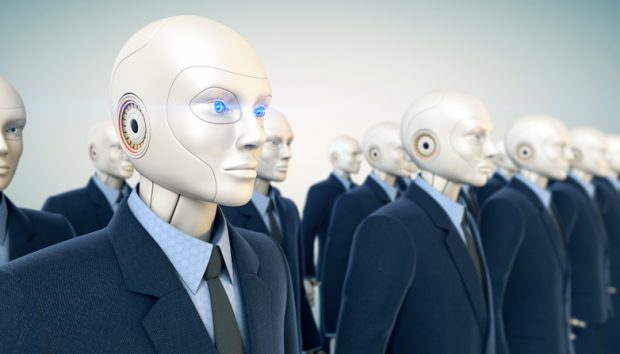October 30, 2025
Are Lawyers Next On AI’s Chopping Block?

In a world where AI continues to replace traditional jobs, the legal profession is now at a crossroads. Recent trends in layoffs across big tech companies such as Amazon and Meta, driven by advances in AI, are raising alarms in various sectors, including law. With AI's growing capabilities, are lawyers also at risk of losing their jobs to technology?
This week, Amazon declared a significant reduction of 14,000 employees by year's end, hinting at a shift towards more AI and automated processes. Similarly, Meta has been streamlining its operations using AI, resulting in thousands of job cuts throughout the year. Other companies like Salesforce have also embraced AI, which has led to the elimination of several customer support roles.
The legal profession, traditionally seen as a field immune to the encroachments of technology, is also starting to feel the heat. A notable instance was when Microsoft announced layoffs that affected dozens of their legal staff. Experts believe AI's role in these layoffs cannot be ignored. Sean Burke of Whistler Partners suggests that AI is increasingly capable of performing tasks usually reserved for junior lawyers, hinting at a future where fewer lawyers may be needed.
Moreover, the rise of AI has empowered many individuals to handle their legal issues without traditional legal counsel. For instance, a California woman successfully overturned a court decision using AI tools, underscoring the potential of AI to perform complex legal analysis. This has led to an increase in pro se litigants, individuals representing themselves in court, leveraging AI for legal assistance.
Despite these challenges, not all legal professionals view AI as a threat. Some, like Zoe Dolan of Public Counsel, are finding innovative ways to integrate AI into legal practices to enhance access to justice. By educating the public on using AI responsibly in legal scenarios, they are paving the way for a new model of legal service that is inclusive and efficient.
The narrative is clear: AI is not just changing how lawyers work; it's revolutionizing who can deliver legal services and how. The future might not be about lawyers versus AI but about how lawyers can collaborate with AI to deliver better, more accessible legal services. As AI continues to evolve, the legal profession will need to adapt, ensuring they remain relevant in an increasingly automated world. The question remains: will lawyers use AI to their advantage, or will they be sidelined by it? The choice, it seems, is squarely in their hands.